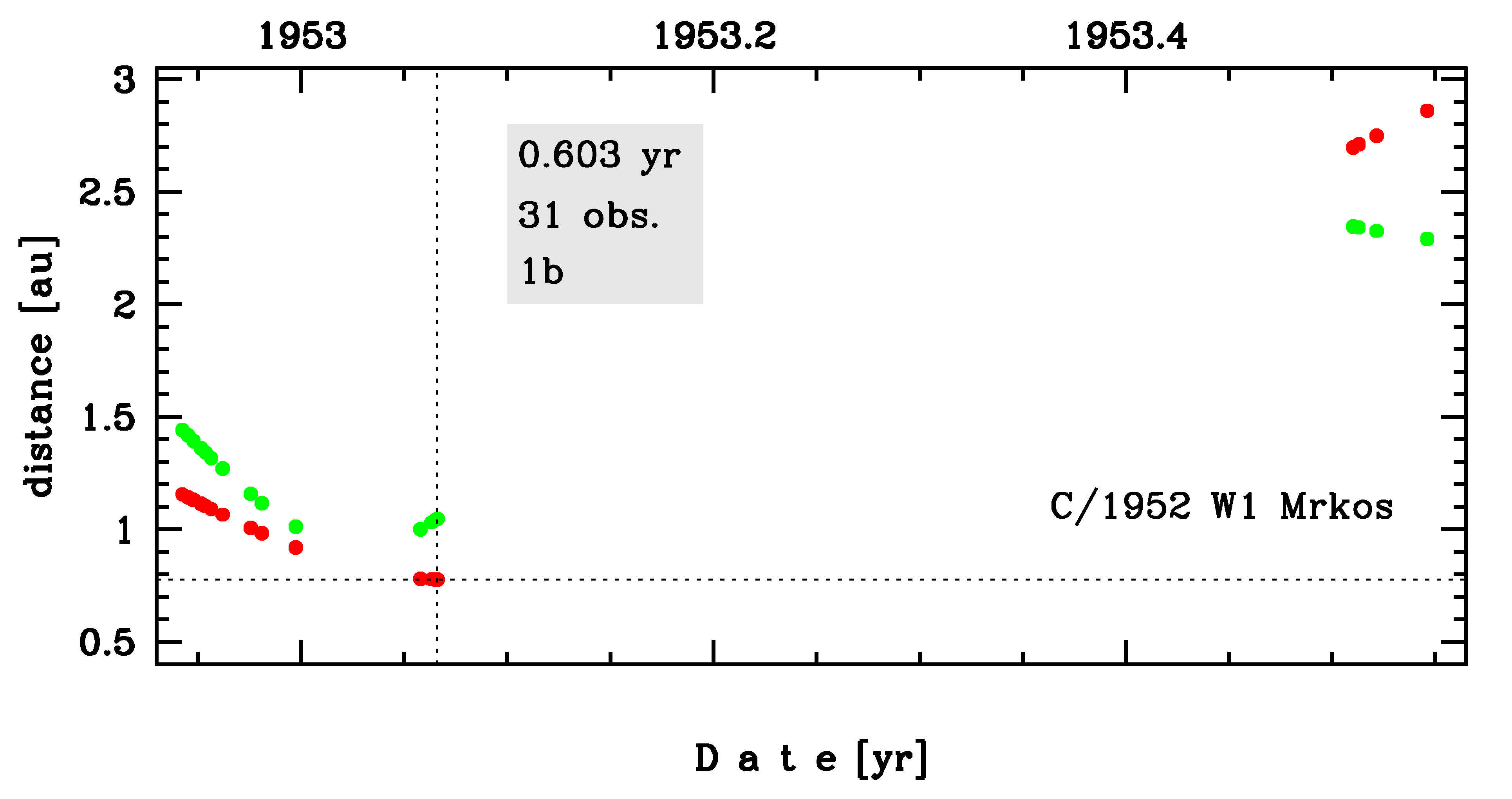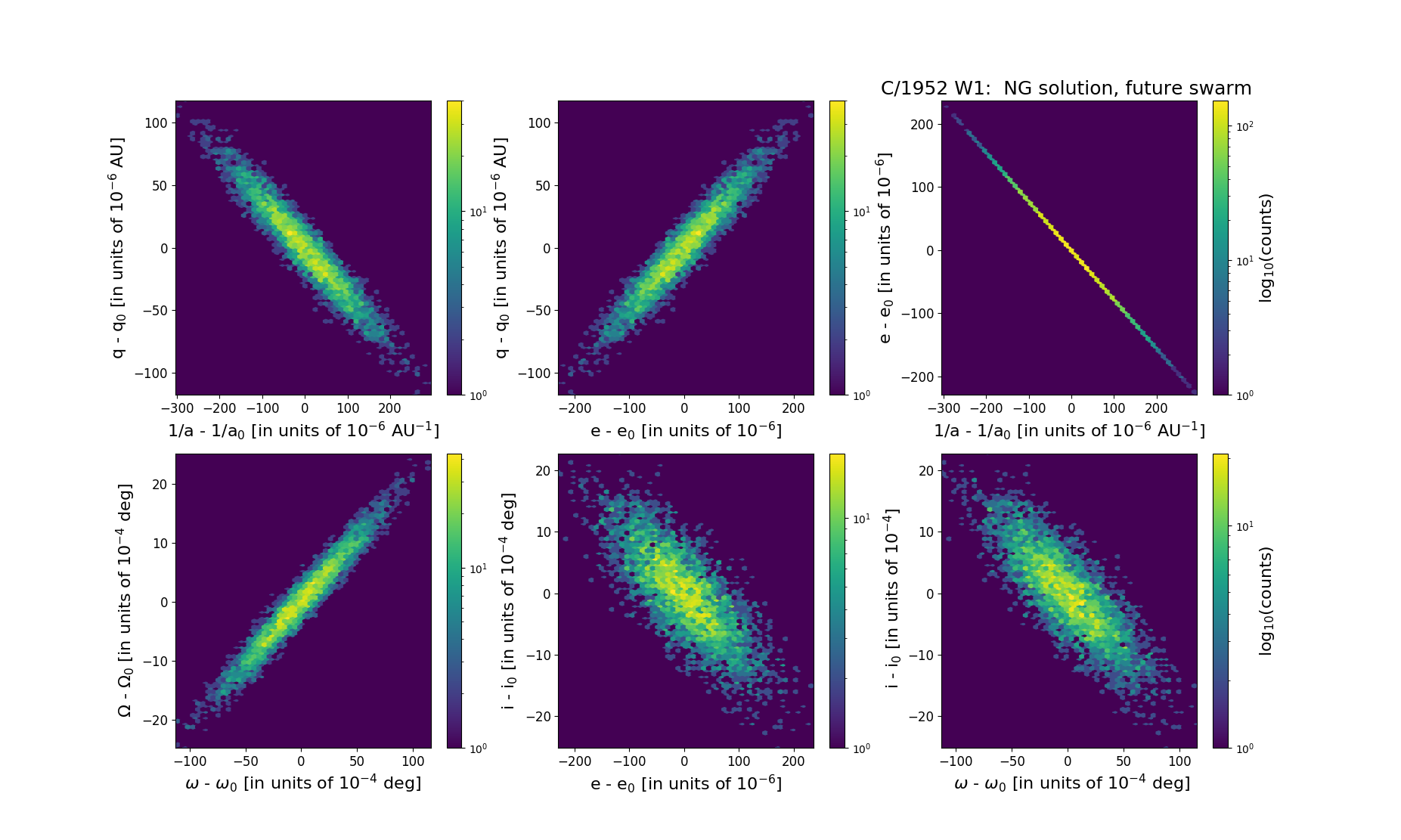C/1952 W1 Mrkos
more info
Comet C/1952 W1 was discovered on 28 November 1952 by Antonin Mrkos (Skalnaté Pleso Observatory, Slovakia), that is almost 2 months before its perihelion passage. It was observed until 5 September 1953 [Kronk, Cometography: Volume 4].
Comet had its closest approach to the Earth on 10 January 1953 (0.922 au), two weeks before its perihelion passage.
Original value of 1/a is negative; however, within its uncertainty of 1 sigma this comet could come from the Oort Cloud.
This comet suffers small planetary perturbations during its passage through the planetary system; these perturbations can lead to escape the comet from the planetary zone on a hyperbolic orbit (see future barycentric orbits).
See also 2011 and Królikowska 2014.
Comet had its closest approach to the Earth on 10 January 1953 (0.922 au), two weeks before its perihelion passage.
Original value of 1/a is negative; however, within its uncertainty of 1 sigma this comet could come from the Oort Cloud.
This comet suffers small planetary perturbations during its passage through the planetary system; these perturbations can lead to escape the comet from the planetary zone on a hyperbolic orbit (see future barycentric orbits).
See also 2011 and Królikowska 2014.
| solution description | ||
|---|---|---|
| number of observations | 31 | |
| data interval | 1952 12 10 – 1953 07 18 | |
| data type | perihelion within the observation arc (FULL) | |
| data arc selection | entire data set (STD) | |
| range of heliocentric distances | 1.16 au – 0.78 au (perihelion) – 2.86 au | |
| type of model of motion | NS - non-gravitational orbits for standard g(r) | |
| data weighting | NO | |
| number of residuals | 58 | |
| RMS [arcseconds] | 0.87 | |
| orbit quality class | 2a | |
| orbital elements (barycentric ecliptic J2000) | ||
|---|---|---|
| Epoch | 2250 01 26 | |
| perihelion date | 1953 01 25.07302164 | ± 0.00176049 |
| perihelion distance [au] | 0.77663996 | ± 0.00003351 |
| eccentricity | 1.00005342 | ± 0.00006606 |
| argument of perihelion [°] | 253.742115 | ± 0.003322 |
| ascending node [°] | 343.512740 | ± 0.000714 |
| inclination [°] | 97.121412 | ± 0.000679 |
| reciprocal semi-major axis [10-6 au-1] | -68.78 | ± 85.05 |
| file containing 5001 VCs swarm |
|---|
| 1952w1n2.bpl |

